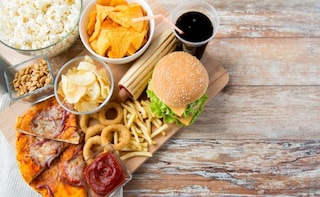Is your diet high in fat? You may want to make some necessary tweaks. According to a latest study, two genes that appear to help stem cells in the intestine burn dietary fat may play a role in colon cancer. The study was published in the journal Gastroenterology. The scientists hinted at a new connection between the way cells consume fat and how genes regulate stem cell behaviour in the intestines of mice. "This is important because scientists have shown that when there's too much dietary fat in the intestine, stem cell numbers increase, boosting susceptibility to colon cancer," said senior author Michael Verzi, associate professor in the Department of Genetics at Rutgers University-New Brunswick.
Intestinal stem cells undergo constant renewal and fuel the continuous turnover of the lining of the intestine, but altered stem cell functions can lead to colon cancer.
Many recent studies have revealed that intestinal stem cells could increase in animals on a high fat "Western" diet, which may be linked to elevated cancer risk from such a diet.
According to the findings of this study, two genes (HNF4A and HNF4G) work together to promote the proper functioning of the intestinal lining.
The team observed that mice lost intestinal stem cells when these genes were inactivated, confirming their significance. The possibility of these genes helping stem cells burn fat is high, said the researchers. This also helps in energy generation.
Further investigation is needed to learn whether the two genes alter stem cell numbers and cancer risk during a high-fat diet, said Verzi, who is also a member of the Rutgers Center for Lipid Research.
(This content including advice provides generic information only. It is in no way a substitute for qualified medical opinion. Always consult a specialist or your own doctor for more information. NDTV does not claim responsibility for this information.)
